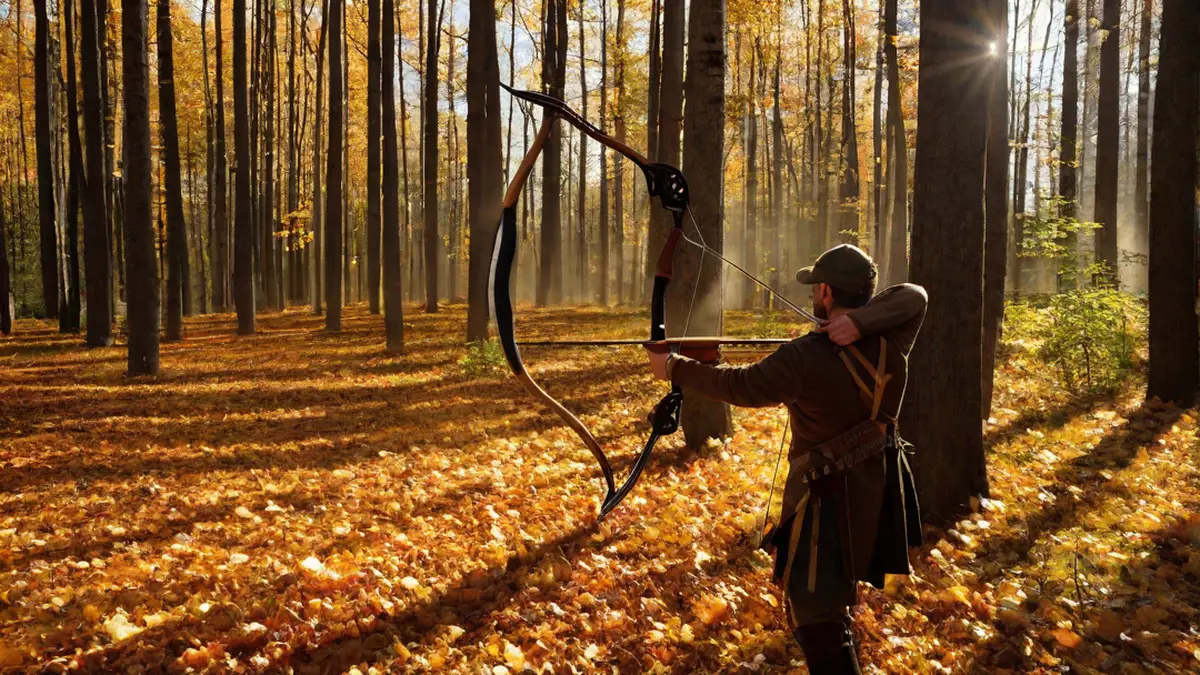Is bow hunting ethical? This is a question that often sparks heated debates among hunting and conservation enthusiasts. As an avid outdoorsman and hunter, I have spent countless hours pondering the ethics of bow hunting. In this article, I will delve deep into the topic, sharing my personal insights and observations.
First and foremost, it is important to understand that bow hunting is a time-honored tradition that dates back thousands of years. Historically, bows were the primary weapon used by our ancestors for hunting, providing sustenance and survival. Today, bow hunting is still practiced by many individuals who embrace the challenge and connection to nature that it offers.
One of the key arguments in favor of bow hunting is its inherent fairness and skill requirement. Unlike hunting with firearms, bow hunting demands a high level of precision and patience. It requires hunters to be extremely close to their prey, often within 20-30 yards, increasing the difficulty factor significantly. This close-range approach ensures that hunters must possess excellent stealth and accuracy to be successful. As a bow hunter myself, I can attest to the countless hours spent practicing my shot placements and honing my skills to ensure ethical kills.
Additionally, bow hunting is often seen as a more humane method of hunting compared to firearms. The velocity and power of arrows are significantly lower than bullets, reducing the chances of animals suffering a prolonged and painful death. When executed properly, an arrow can cause a quick, clean kill, minimizing unnecessary suffering. This aspect of bow hunting aligns with the principles of ethical hunting, which emphasize a respect for the animal and a commitment to minimizing its suffering.
Furthermore, bow hunting encourages a deep connection with nature and the environment. To be successful in bow hunting, hunters must intimately understand the habits, behaviors, and patterns of their prey. This connection fosters a greater appreciation for wildlife and promotes a sense of stewardship towards conservation efforts. Bow hunters often spend hours scouting, studying tracks, and observing animal movements, which not only enhances their hunting skills but also deepens their respect for the natural world.
However, it is essential to address the concerns raised by opponents of bow hunting. Some argue that bows have a higher chance of injuring rather than killing the animal. While it is true that bow hunting requires precise shot placement, responsible hunters take great care to ensure a clean and ethical kill. This is achieved through rigorous training, selecting appropriate draw weights, and using cutting-edge broadheads designed for quick and humane kills.
Another aspect often debated is the distance at which bow hunters engage their prey. Critics argue that the close proximity required for bow hunting increases the chances of human-predator encounters and accidents. While there is a level of risk involved, responsible bow hunters prioritize safety above all else. They practice strict scent control, wear appropriate camouflage, and employ tree stands or ground blinds to minimize the likelihood of being detected by animals.
In conclusion, bow hunting is a deeply personal and ethical choice that should be approached with respect and responsibility. While it may not be for everyone, it offers a unique connection to nature, a challenge that hones one’s skills, and an opportunity to engage in sustainable wildlife management. As with any form of hunting, it is crucial to prioritize the well-being of the animal and adhere to ethical practices. Ultimately, the ethics of bow hunting lie in the hands of those who engage in it, and a commitment to conservation and ethical hunting practices should always be at the forefront of our minds.
Conclusion
After delving deep into the topic, it is clear that the ethics of bow hunting are subjective and open to interpretation. While some may view it as cruel or unnecessary, others, myself included, see bow hunting as a profound and ethical way to connect with nature and sustainably manage wildlife populations. Ultimately, the decision to participate in bow hunting should be a personal one, guided by a deep respect for the animal and a commitment to ethical hunting practices. As long as hunters prioritize the well-being of the animal and adhere to strict ethical standards, bow hunting can be a rewarding and responsible pursuit.
